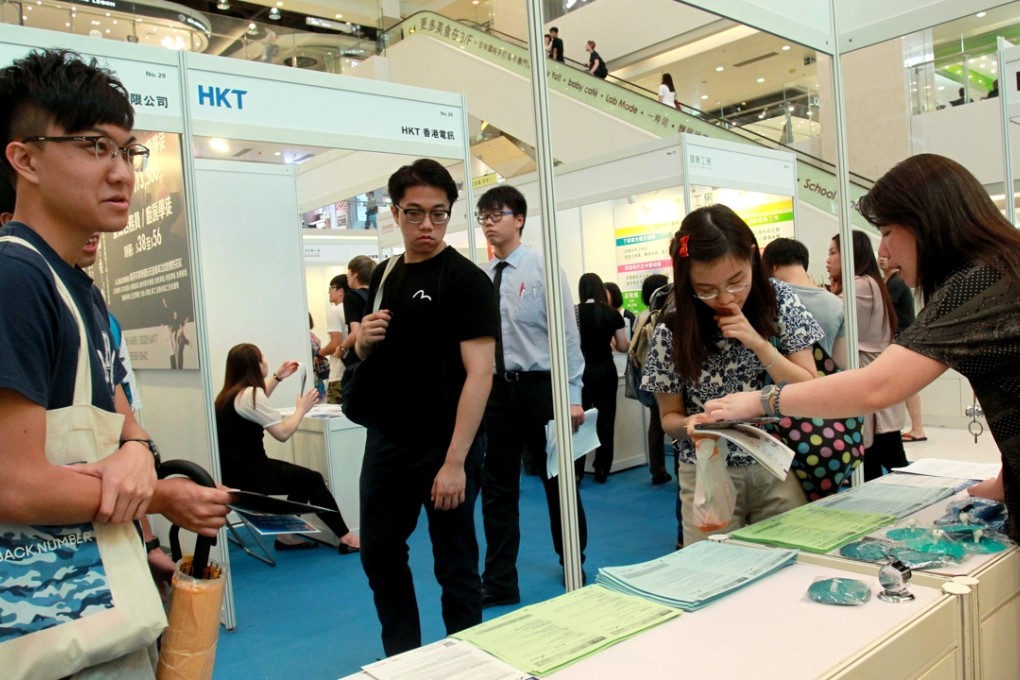Changing the recruitment criteria for Hong Kong’s young job seekers can help reduce the problem of skills mismatch
Jay Son Ji-Ho says employers here should follow Ernst & Young’s example by putting less emphasis on academic qualifications when recruiting

Employers in Hong Kong are finding it increasingly difficult to hire young workers with the relevant skills and training. Despite a large pool of talented university graduates with degrees from some of the city’s best universities, Hong Kong’s youth unemployment is high at about 8 per cent.
A university education is no longer enough for students to distinguish themselves and demonstrate that they have the right workplace skills
This is a result of many factors, one being a divergence between what young people consider is helpful for getting a job and the actual work skills sought by employers.
The solution lies in overhauling the methods of recruitment used by employers. Less consideration of a candidate’s academic qualifications and more about their performance on company-specific pre-hire assessments would lead to a change in perspectives.
Earlier this year, British firm Ernst & Young announced that it will be abolishing the degree classification from its criteria for entry-level positions. It will still consider academic qualifications when assessing candidates, but will place greater emphasis on online assessments. The company believes that a lack of academic qualifications should no longer be a barrier to employment because there is “no evidence” a university education correlates with success in the workplace.
READ MORE: A university degree in Hong Kong is no longer worth what it once was

Yet, university curriculums often lack specific work-related skills training, leaving graduates unprepared for the extremely competitive Hong Kong job market.
READ MORE: Young people need the right skills to ensure Hong Kong’s future
Following in the footsteps of Ernst & Young may be the right path for employers in Hong Kong. Many do use pre-hire assessments, as they are effective in recognising skills mismatches between applicant and job. Such assessments could also benefit young job seekers.
If employers in Hong Kong were to shift their focus away from academic qualifications to how well candidates perform in pre-hire assessments, it is likely that young job seekers would learn to develop the skills being tested in the assessment, and which would actually be useful on the job.